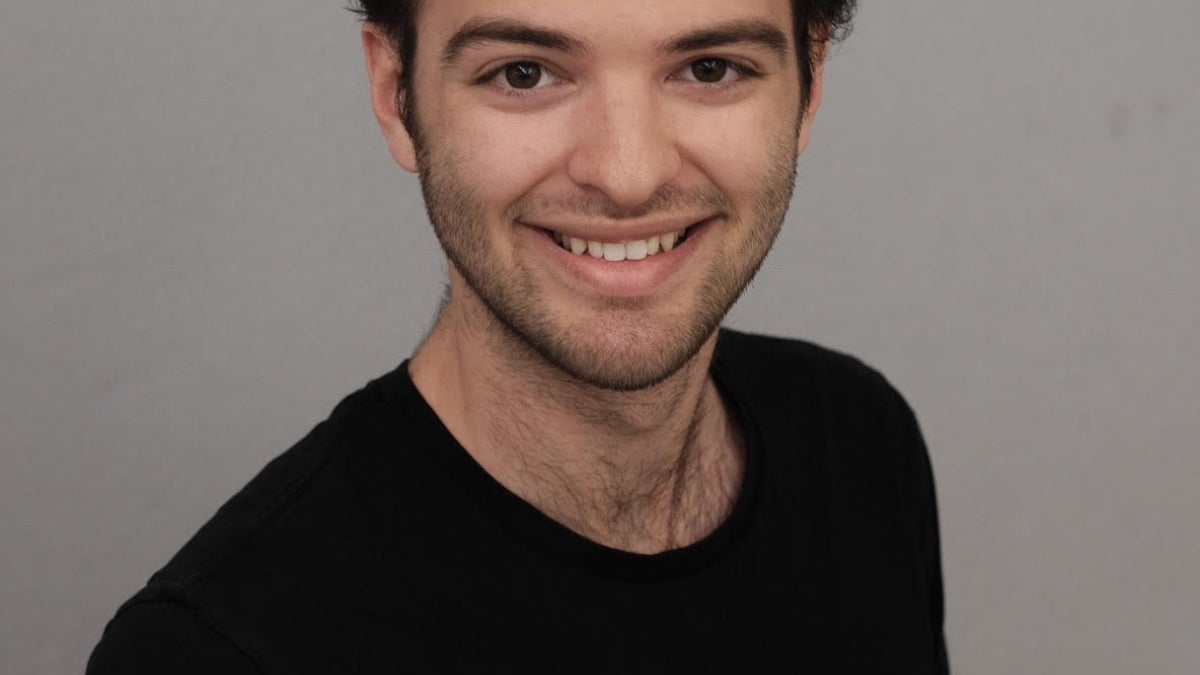Jewish studies program at ASU promotes diversity and learning

Hal Danesh is one of many students in the Jewish Studies program in the College of Liberal Arts and Sciences, where faculty and students work together to promote diversity and lifelong learning.
For many, studying religion at a public university may seem out of place. Studying historical cultures and ancient languages in order to learn more about your own culture? Even more so. But that’s exactly what the Jewish studies program at Arizona State University provides to students.
“Students who take courses in Jewish studies enhance their understanding of their own culture, whatever it may be,” said Hava Tirosh-Samuelson, director of the Jewish studies program and the Center for Jewish Studies at ASU. “The study of Jews and Judaism enhances tolerance, which is necessary for a thriving democracy.”
In 1978, the certificate in Jewish studies was established in the College of Liberal Arts and Sciences as one of the many programs offered at ASU that uses interdisciplinary scholarship to educate students in critical thinking and prepare them for a wide range of careers.
The program, which goes beyond a mere ethnic-studies framework, covers a wide array of perspectives about Jewish history, religion and culture that allow students of numerous upbringings and persuasions to explore the complexity of Jewish history and its relationships with surrounding religions and cultures.
“Students encounter an extremely rich and multifaceted culture,” said Francoise Mirguet, professor of Jewish studies in the School of International Letters and Cultures. “They encounter the opinions of very diverse thinkers — some who seek continuity with foundational texts; some who make radical innovations; and even some who question their own tradition.”
In 2009, a Bachelor of Arts degree in Jewish studies was established. Graduates go on to work in fields such as law, economics, education, medicine, politics and social work. For students looking to enter the Jewish community after graduation, the program helps them prepare for positions such as rabbis, cantors, teachers and community leaders.
Many students pair the Jewish studies degree with another major. One such is Hal Danesh, a sophomore majoring in history and Jewish studies, who found his niche in the program.
“Halfway through the fall semester of my sophomore year, I discovered my passion for Jewish history,” Danesh said. “It is my goal to eventually become a professor to teach and do research in Jewish studies.”
In a program designed for a diverse spectrum of interests, courses are available and relevant to numerous aspects of life and are intended to instill curiosity and the desire to learn in its students.
Courses are taught by faculty from across ASU, including the School of International Letters and Cultures; the School of Historical, Philosophical and Religious Studies; the Department of English; the School of Politics and Global Studies; the School of Social Transformation and the College of Integrative Sciences and Arts.
“The Jewish tradition is committed to lifelong learning,” Tirosh-Samuelson said. “It highlights the significance of reading and interpretation, and it trains a person to be intellectually inquisitive and committed to the acquisition of knowledge and wisdom.”
Danesh emphasizes the large amount of resources available to students, making the relatively small program a venue for endless learning and opportunity to connect with students and faculty on a more personal level.
“One of my favorite aspects about the program is that students get to know the faculty and learn from them outside of the classroom,” Danesh said. “Professors are eager to see their students succeed, and they’ve given me a lot of advice.”
The program strives to create a diverse and welcoming environment for students and faculty of all backgrounds, and Mirguet emphasizes that the Jewish Studies program is where everyone can learn to recognize the importance of appreciating the intricacies of all human cultures.
“In Jewish studies, students learn about human experience in all its subtlety,” Mirguet said. “Humanity lies at the intersection of trauma and survival, continuity and transformation, sense of self and openness to others.”
More Arts, humanities and education

ASU’s Humanities Institute announces 2024 book award winner
Arizona State University’s Humanities Institute (HI) has announced “The Long Land War: The Global Struggle for…

Retired admiral who spent decades in public service pursuing a degree in social work at ASU
Editor’s note: This story is part of coverage of ASU’s annual Salute to Service.Cari Thomas wore the uniform of the U.S. Coast…

Finding strength in tradition
Growing up in urban environments presents unique struggles for American Indian families. In these crowded and hectic spaces,…